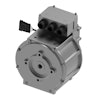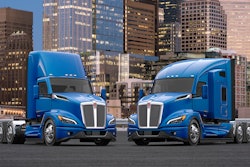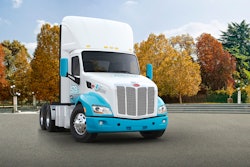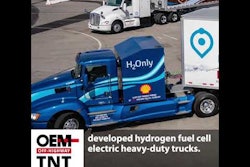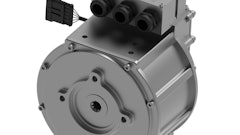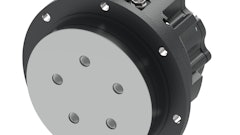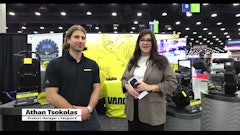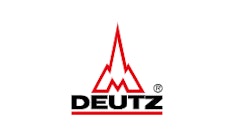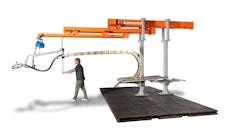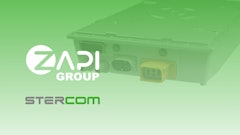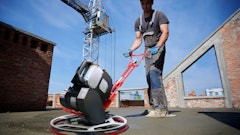
Electric trucks developed by Peterbilt Motors Company and Kenworth Truck Company recently reached the summit of Pikes Peak, one of the most famous mountain roads in the United States. The Peterbilt Model 579EV battery-electric Class 8 truck and Kenworth T680 fuel cell electric vehicle (FCEV) made the journey to the summit, demonstrating the performance capabilities of these electric powered vehicles.
The summit is located at 14,115 ft. (4,302.3 m) and has an average grade of 7%. In addition, there are 156 turns over the last 12.42 mi. (20 km).
Over the course of 3 days, Peterbilt's Model 579EV battery-electric Class 8 truck traveled to the summit several times. Peterbilt says in its press release about the achievement that this journey was made with ease. The company notes energy recovered from regenerative braking on the descent was used to recharge the truck's batteries to ensure it had enough power to make the ascent again.
"The performance of the Model 579EV while navigating to the summit of Pikes Peak was nothing short of amazing. Handling the 156 corners was made easier thanks to the lower center of gravity provided by the battery location on the 579EV," said Darryl Oster, Peterbilt Assistant Chief Engineer.
The Model 579EV is powered by Lithium Iron Phosphate battery packs capable of providing a range of up to 150 mi. (241.4 km) It is available in a tandem drive configuration with Meritor 14Xe e-axle motors which help power the truck. Peterbilt announced in November the truck was available for customer orders. It says the ascent up Pikes Peak provides further credibility to the vehicle being ready for the market.
Fuel cell truck proves its capabilities
The Kenworth T680 FCEV is a fuel cell powered Class 8 truck developed in partnership with Toyota Motor North America R&D. It made the ascent up Pikes Peak as part of a zero emissions performance demonstration.
A Toyota hydrogen fuel cell electric powertrain offering 470 hp (350.5 kW) powers the truck. It features a 350-mi. (563.3 km) range with a 15-minute refill time.
Brian Lindgren, Kenworth Research and Development Director, notes in Kenworth's press release about the demonstration that although the elevation to the summit is just over 7%, there are several long sections with a 10% or higher grade. "The Kenworth T680 FCEV had plenty of power on the hill climb, performed well at extreme altitude, and exhibited excellent drivability through the 156 twisting turns and switchbacks," he said.
"The road to the top of Pikes Peak is a long and steady climb, so we were glad to see the Toyota-powered Kenworth T680 truck confirm our expectations and climb to the summit while delivering excellent performance and drivability," said Andy Lund, Chief Engineer, Toyota Motor North America Research and Development. "It’s another example of the capability of Toyota’s fuel cell electric drive system and we look forward to continuing our work with Kenworth to get Class 8 fuel cell trucks on the road."
Kenworth and Toyota Motor North America are collaborating on a program to develop a total of 10 zero emissions Kenworth T680 FCEVs with the Toyota hydrogen fuel cell electric powertrain for service with customers at the Port of Los Angeles.
Both the Peterbilt and Kenworth electric trucks used in these demonstrations have achieved over 100,000 mi. (160,934.4 km) of real-world operating miles to date, proving their ability to meet the varied needs of fleet operators. And as they continue to be utilized in real-world conditions like the journey to the summit of Pikes Peak, the OEMs will be able to gain valuable knowledge about their vehicles' capabilities and how to improve them further as they continue their electric vehicle R&D efforts.


